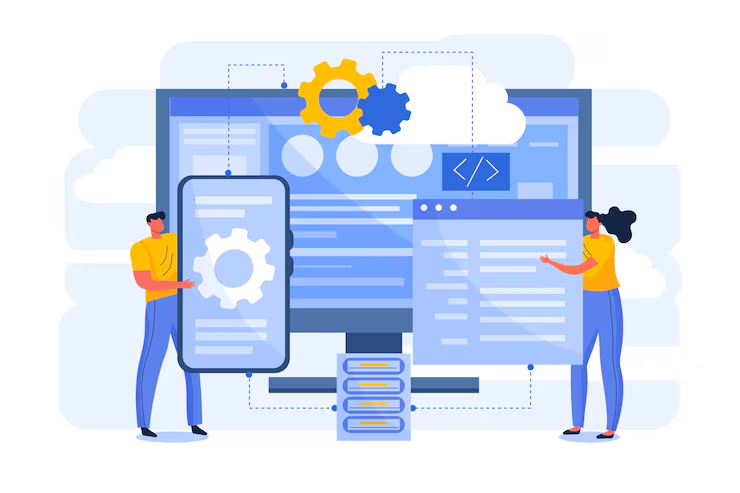
Close
In any project, the foundation of success lies in a comprehensive understanding of the requirements. This initial phase is crucial, as it sets the stage for all subsequent actions and decisions. A thorough grasp of the project’s objectives, scope, and deliverables allows team members to align their efforts effectively.
It is essential to engage with stakeholders to clarify expectations and gather insights that may not be immediately apparent. This dialogue can reveal underlying motivations and constraints that shape the project’s direction. By actively listening and asking probing questions, team members can ensure that they are not only meeting the stated requirements but also anticipating potential challenges and opportunities that may arise during the project lifecycle.
Moreover, understanding project requirements extends beyond mere documentation; it involves a deep dive into the context in which the project operates. This includes recognizing the target audience, market conditions, and any regulatory or compliance issues that may impact the project. A well-rounded comprehension of these factors enables teams to make informed decisions that resonate with stakeholders and end-users alike.
Additionally, it fosters a sense of ownership among team members, as they become more invested in the project’s success when they understand its broader implications. Ultimately, a solid grasp of project requirements serves as a compass, guiding teams through the complexities of execution while ensuring alignment with strategic goals.
Effective communication is the lifeblood of any successful project. It facilitates the exchange of ideas, clarifies misunderstandings, and fosters a collaborative environment where team members feel empowered to contribute. Establishing clear channels of communication from the outset is vital; this includes determining preferred methods—be it face-to-face meetings, emails, or collaborative platforms—and setting expectations for responsiveness.
Regular check-ins and updates can help maintain momentum and ensure that everyone is on the same page. Furthermore, creating an atmosphere where team members feel comfortable voicing their thoughts and concerns can lead to innovative solutions and a more cohesive team dynamic. Collaboration goes hand in hand with communication, as it encourages diverse perspectives to come together in pursuit of a common goal.
When team members collaborate effectively, they leverage each other’s strengths and expertise, resulting in a richer pool of ideas and solutions. This synergy can be particularly beneficial in complex projects where multifaceted challenges require input from various disciplines. Encouraging cross-functional collaboration not only enhances problem-solving capabilities but also fosters a sense of camaraderie among team members.
By cultivating an environment where collaboration is valued and rewarded, organizations can harness the collective intelligence of their workforce, ultimately driving project success.

In today’s fast-paced and ever-evolving landscape, possessing technical expertise is paramount for project success. This expertise encompasses not only a deep understanding of specific tools and technologies but also an awareness of industry trends and best practices. Team members equipped with relevant skills can navigate challenges more effectively and contribute to innovative solutions that propel projects forward.
Continuous learning and professional development are essential in this regard; staying abreast of advancements in technology ensures that teams remain competitive and capable of leveraging new tools to enhance productivity. Moreover, technical expertise is not solely about individual proficiency; it also involves fostering a culture of knowledge sharing within the team. When team members are encouraged to share their insights and experiences, it creates an environment where collective learning thrives.
This collaborative approach not only enhances individual skill sets but also strengthens the overall capability of the team. By investing in training programs and encouraging mentorship opportunities, organizations can cultivate a workforce that is not only technically adept but also agile in adapting to new challenges. Ultimately, a strong foundation of technical expertise empowers teams to tackle complex projects with confidence and creativity.
In an era characterized by rapid change and uncertainty, adaptability and flexibility have emerged as critical attributes for project teams. The ability to pivot in response to shifting circumstances or unexpected challenges can mean the difference between success and failure. Teams that embrace change rather than resist it are better positioned to seize opportunities as they arise.
This mindset requires a willingness to reassess priorities, reallocate resources, and adjust timelines as necessary. By fostering a culture that values adaptability, organizations can empower their teams to respond proactively to evolving project dynamics. Flexibility also extends to interpersonal relationships within the team.
Recognizing that each member brings unique strengths and perspectives allows for a more fluid approach to collaboration. When team members are open to adjusting their roles or responsibilities based on the needs of the project, it enhances overall efficiency and effectiveness. This collaborative flexibility can lead to innovative solutions that may not have emerged in a more rigid environment.
By cultivating an adaptable mindset and encouraging open communication about changing needs, organizations can create resilient teams capable of thriving amidst uncertainty.
The ability to solve problems effectively is one of the most valuable skills a project team can possess. Projects often encounter unforeseen obstacles that require quick thinking and creative solutions. A strong problem-solving approach involves not only identifying the root cause of an issue but also exploring multiple avenues for resolution.
Teams that foster a culture of critical thinking encourage members to analyze situations from various angles, leading to more comprehensive solutions. This collaborative problem-solving process not only enhances outcomes but also builds trust among team members as they work together to overcome challenges. Moreover, effective problem-solving is closely tied to emotional intelligence—the capacity to understand and manage one’s emotions while empathizing with others.
Team members who possess high emotional intelligence are better equipped to navigate conflicts and facilitate constructive discussions around problem resolution. By creating an environment where individuals feel safe expressing their concerns and brainstorming solutions together, organizations can harness the collective intelligence of their teams. Ultimately, strong problem-solving skills empower teams to tackle challenges head-on, fostering resilience and adaptability throughout the project lifecycle.

Time management is an essential skill that underpins successful project execution. In an environment where deadlines are often tight and resources limited, effective time management enables teams to prioritize tasks and allocate resources efficiently. Establishing clear timelines and milestones helps keep everyone accountable while providing a roadmap for progress tracking.
Utilizing tools such as Gantt charts or project management software can enhance visibility into task dependencies and deadlines, allowing teams to identify potential bottlenecks before they escalate into larger issues. Furthermore, time management is not solely about meeting deadlines; it also involves recognizing when adjustments are necessary. Projects rarely unfold exactly as planned, so teams must be prepared to reassess priorities and adapt their schedules accordingly.
Encouraging open dialogue about workload distribution can help identify areas where support may be needed or where tasks can be streamlined. By fostering a culture that values time management while remaining flexible in response to changing circumstances, organizations can enhance productivity and ensure that projects are completed on time without compromising quality.
Quality assurance is a critical component of any successful project, ensuring that deliverables meet established standards and satisfy stakeholder expectations. A commitment to quality begins with attention to detail at every stage of the project lifecycle—from planning through execution to final delivery. Teams that prioritize quality assurance implement systematic processes for reviewing work products, conducting tests, and soliciting feedback from stakeholders.
This proactive approach not only minimizes errors but also enhances overall project outcomes by ensuring that deliverables align with strategic objectives. Attention to detail is equally important in fostering a culture of quality within teams. When individuals take pride in their work and are diligent about maintaining high standards, it reflects positively on the entire project.
Encouraging team members to adopt a meticulous approach can lead to improved accuracy and consistency across deliverables. Additionally, recognizing and rewarding attention to detail reinforces its importance within the organizational culture. By embedding quality assurance practices into daily workflows and emphasizing the significance of detail-oriented work, organizations can cultivate a reputation for excellence that resonates with clients and stakeholders alike.
In conclusion, successful project execution hinges on several interrelated factors: understanding project requirements, effective communication and collaboration, technical expertise, adaptability, problem-solving skills, time management, and quality assurance. Each element plays a vital role in navigating the complexities of modern projects while ensuring alignment with strategic goals. By fostering a culture that values these attributes, organizations can empower their teams to thrive amidst challenges, ultimately driving successful outcomes that benefit all stakeholders involved.
For those interested in understanding the differences between staff augmentation and outsourcing, and determining which approach might be best suited for your business needs, consider reading the insightful article available at Augmented Team. This piece delves into the pros and cons of each method, helping you make an informed decision on how to successfully manage your project resources. You can find this valuable resource by visiting Staff Augmentation vs Outsourcing: Which is Best for Your Business?. This article is particularly useful for those looking to complement their knowledge on essential staff augmentation skills for successful projects.
Staff augmentation is a strategy where a company hires additional staff on a temporary basis to fill specific skill gaps or to meet increased workload demands. These staff members work alongside the existing team and are typically employed through a third-party agency.
Essential skills for staff augmentation include strong communication, adaptability, technical expertise, problem-solving abilities, and the ability to work well in a team. These skills are crucial for successful project completion and integration with the existing team.
Staff augmentation benefits a project by providing access to specialized skills and expertise that may not be available within the existing team. It also allows for increased flexibility in managing workload fluctuations and can help meet project deadlines more effectively.
Challenges of staff augmentation include integrating new team members into the existing team, ensuring effective communication and collaboration, and managing potential conflicts or differences in work styles. It is important to carefully select staff augmentation candidates to minimize these challenges.
Staff augmentation can be effectively managed by clearly defining project goals and expectations, providing thorough onboarding and training for new team members, establishing open lines of communication, and regularly evaluating performance and progress. Effective project management and leadership are also crucial for successful staff augmentation.
Augmented Team Pvt Ltd

